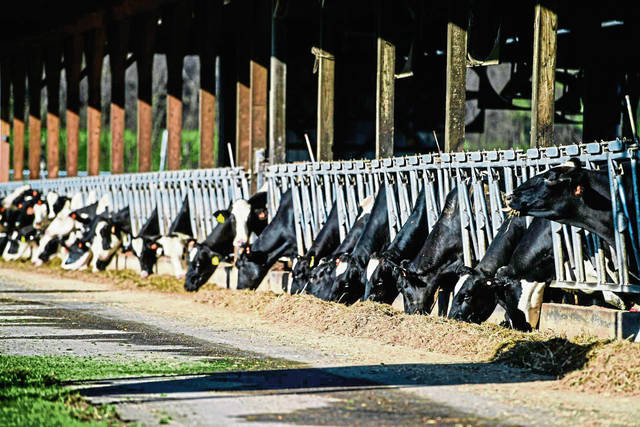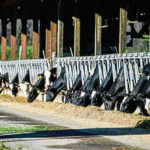Westmoreland County farmers adversely affected by the ongoing trade dispute with China have begun receiving payments from the $16 billion aid package announced by President Trump in May.
“None of these payments are making anybody whole, but it gives the farmer a little money to help with bills,” said Pennsylvania Farm Bureau President Rick Ebert, a dairy farmer in Derry Township. “It’s not like it’s a windfall for them.”
Mark O’Neill, spokesman for the farm bureau, added that while the assistance is appreciated, it’s no substitute for free access to markets.
The first set of payments went out in August. Further payments will be made in November and early January, as conditions warrant.
As of Sept. 30, nearly $5.2 billion in payments had been made, according to the U.S. Department of Agriculture’s Farm Service Agency. The top five states were Iowa, Illinois, Minnesota, Nebraska and Kansas.
The aid package, larger and more expansive than the one in 2018, is meant to offset the negative impact that the U.S.-China trade dispute has had on American farmers already suffering from several years of low commodities prices.
Trump’s tariffs on foreign aluminum and steel prompted retaliatory tariffs from China on a range of American agricultural products including soybeans. China was once the largest purchaser of American soybeans, buying one third of all soybeans grown in the U.S. and two-thirds of those exported, according to the farm bureau.
O’Neill said this year’s package, known as the Market Facilitation Program, includes payments for dairy farmers at 20 cents per hundredweight of milk — up from 12 cents per hundredweight in 2018 — and payments to hog farmers at $11 per head — up from $8 per head in 2018.
Milk is typically priced and sold in increments of 100 pounds, the equivalent of about 12 gallons.
Crop payments are more complicated, depending on the type of crop and which state and county the farm is located in, O’Neill said.
Payments for non-specialty crops such as corn and soybeans range nationally from $15 to $150 per acre and in Pennsylvania from $15 to $71 per acre. In Westmoreland County, the payment rate is $32 per acre.
Specialty crops such as almonds, cranberries, cultivated ginseng, fresh grapes, fresh sweet cherries, hazelnuts, macadamia nuts, pecans, pistachios and walnuts also are covered but have a different rate of payment.
Ebert said he knows of some Westmoreland County farmers who have applied for the aid, although he’s not sure of the numbers. He himself has applied for the payments.
“I would say that any farmer that is eligible to receive payments is going to attempt to get those payments because our farmers, almost across the board, have been struggling with low prices and have been negatively affected by the trade disputes,” O’Neill said.
O’Neill said the farm bureau’s position on the aid package has not changed — that American farmers do well under “fair and free” trade agreements because they have the best products and the most affordable prices in the world.
“Pennsylvania farmers prefer to earn their income through the direct sale of their agricultural products domestically and abroad,” he said.
Finding alternative export markets may become more difficult the longer the U.S.-China trade dispute drags on, according to a new report by the Boston Consulting Group.
“The growing risk is that much of the market share abroad that U.S. agribusiness is losing to foreign competitors will be hard, if not impossible, to win back — even if current trade conflicts are resolved to the U.S. government’s satisfaction,” the BCG study said.
Farmers wishing to participate in the Market Facilitation Program have until Dec. 6 to apply at their local Farm Service Agency office. The FSA office serving Westmoreland and Fayette counties is located at 214 Donohoe Road in Hempfield.













